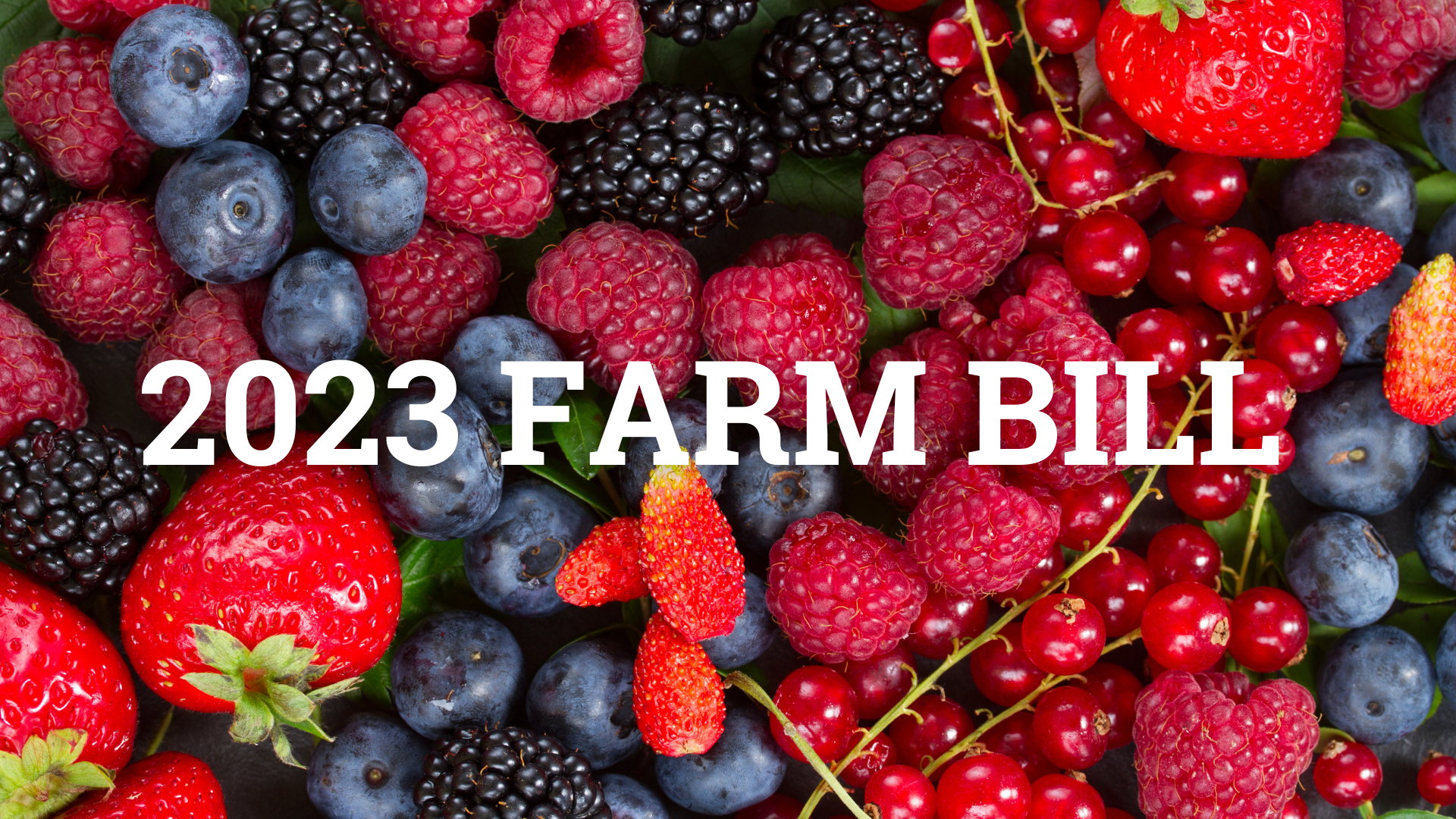By Jamie Fussell
Florida Fruit and Vegetable Association
“In my eyes, food security and national security are one and the same.”
Florida grower Dustin Grooms shared those words during a recent congressional hearing in Newberry, Florida, on the Farm Bill, a piece of federal legislation that touches almost every American in some way.
Farm Bill dates back to the 1930s
Congress is set to re-authorize the Farm Bill this year, a process that happens every five years since it was first adopted in 1933 as part of the New Deal. The Farm Bill establishes national agriculture, conservation and nutrition policy and spending priorities.
The current Farm Bill has an expiration of September 30, 2023, but the U.S. House and Senate agriculture committees are slowly moving toward reauthorization. With the national debt default discussions demanding most of the attention, it is a challenging time to be debating the 2023 Farm Bill.
Florida growers push for strong specialty crop investment
As part of that process, the U.S. House and Senate agriculture committees have a tradition of holding field hearings in farm states to hear the challenges facing growers and ranchers, and how a reauthorized Farm Bill can help address those challenges. At April’s Newberry, Florida, field hearing, U.S. House Committee on Agriculture members heard emotional testimonies from Dustin and other growers as to how input costs, trade policy and workforce instability are challenging their very existence. They also shared how funding research is critical to that future.
During the session, members of the Florida Fruit & Vegetable Association which is united to advocate for a common set of priorities in the 2023 Farm Bill, shared stories specific to the specialty crop industry. A broad coalition of specialty crop organizations, known as the Specialty Crop Farm Bill Alliance (SCFBA), representing U.S. growers and shippers, has been working to forge mutual objectives for the Farm Bill, to assure a common platform across regions, commodities and other interests. The alliance spent more than a year meeting and developing recommendations. A few of those highlighted by Florida growers at the field hearing included:
- Improvements to general crop insurance.
- Creation of a potential risk management/safety net program exclusively for specialty crops.
- Investment in a standalone mechanization and automation research and development program.
- Creation of a reimbursement-based cost-share program focused on deploying new technologies.
- Stronger and enforceable Buy American requirements.
- Development of a domestic market promotion strategy.
- Increasing or maintaining funding for research priorities, including the Specialty Crop Research Initiative (SCRI), IR-4 Project, Emergency Citrus Disease Research and Development Trust Fund and the Specialty Crop Block Grant Program.
These are but a few of the 109 specific recommendations from the alliance. The full text of recommendations can be found at farmbillalliance.com.
Dustin said it best, and it certainly bears repeating – securing a safe, abundant and reliable food supply is a national security issue. And with the implementation of these and other policies, we will help protect the future of agriculture in Florida and across the U.S.
Guest blogger disclaimer: SCCAHS provides the blog as a forum for the discussion of issues related to agricultural health and safety and recruits outside contributors in the form of guest bloggers. These bloggers appear under this disclaimer and must meet SCCAHS’s mission and vision. The opinions expressed by guest bloggers and those providing comments are theirs alone, and do not reflect the opinions of SCCAHS, the Institute of Food and Agricultural Sciences or the University of Florida. SCCAHS is not responsible for the accuracy of any of the information supplied by the guest bloggers.

